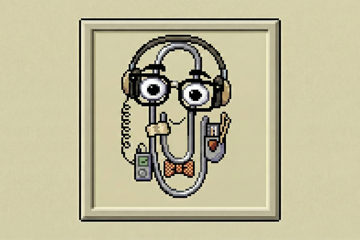 Ed Sheeran
Ed SheeranEd Sheeran's victory is an incredible relief for songwriters and music creators. Although the case was treated rather frivolously in the media at large, the outcome truly represented a potential existential threat to new music. To suggest that the basic building blocks of songwriting can be owned by anyone is a terrifying proposition.
I suppose the case once again illustrates that determining whether copyright has been infringed requires expertise, not merely the lay opinions of drivetime radio hosts.
It has long been understood in the music industry that the only true protectable musical elements of a song are the lyrics and melody. Think about it this way. If I play Yesterday by The Beatles in a different key and at a different speed, is it a new song? Obviously not. What if I were to change the chords? Have I created a new work? Again, it's clear that I haven't.
This goes to the heart of the Ed Sheeran case. If, in fact, the chord progression is a protectable element, then changing the chords to Yesterday (otherwise known as reharmonising) would potentially attract a co-writing credit with Paul McCartney. Of course, there have been literally thousands of versions of Yesterday, many of which were reinventions of the harmony and feel. None of these alter the underlying copyright.
Ed Sheeran's adversaries in the recent case claimed that he had copied the “heart” of Let's Get It On. This kind of nebulous, woo-woo language is a good indication that their case was both novel and tenuous. To my knowledge, never before has someone been guilty of infringing on the “heart” of another person's work.
Don't miss a beat with our FREE daily newsletter
But on a more technical level, it pays to point out that probably 95% of songs are built on six chords. In the key of C, these are C Major, D minor, E minor, F Major, G Major, and A minor. The complainants in this case were effectively saying they have ownership over a particular arrangement of four of these chords. To songwriters, this case was surely a non-starter. There are literally tens of thousands of examples where songs share the same chord progressions. It's not even drawing a long bow to say that the case was analogous to an artist claiming they own a combination of colours. We only have the rainbow – you can’t own certain colours.
It's been rightly pointed out that had Ed Sheeran's Thinking Out Loud not been so wildly successful, no one would have bothered with such a frivolous lawsuit. It's a case of follow the money. While I agree with that, I think it should be noted that the complainants in the case were the heirs of the original songwriters. To me, that makes perfect sense. Despite the temptation of siphoning off potentially millions of dollars from Ed Sheeran's well-stuffed coffers, a professional songwriter would never dare to believe that they could own a chord progression. In fact, they would probably not even pursue such a potentially lucrative case to avoid the embarrassment and shame of making such a claim.
When Tom Petty’s melody was fairly obviously (and likely unintentionally) copied by Sam Smith’s Stay With Me, Petty said this: “About the Sam Smith thing. Let me say I have never had any hard feelings toward Sam. All my years of songwriting have shown me these things can happen.”
Every musician understands the process of writing a song always involves building on what has been done before. Most of the time when you sit down to write something, you have it in mind that you want to write a version of something else. It's the natural cycle of being inspired by existing works to create new works. And it's certainly not overstating it to say the Ed Sheeran case put that process under direct threat.
In addition to being opportunistic, I would wager that the heirs of the original songwriters are not musicians themselves and perhaps don't have that understanding of the creative process. Perhaps that view is too charitable but consider this: Paul McCartney never sued the writers of the TLC song Waterfalls, even though it clearly lifted protectable elements of his own song, also called "Waterfalls”. He certainly was aware of it. He said at the time: “Somebody had a hit, a few years ago, using the first line [of my song], ‘Don’t go jumping waterfalls / Please stick to the lake…’ And then they go off into another song. It’s like, ‘Excuse me?'” To date, no lawsuit has been forthcoming.
But bear in mind the context. John Lennon once explained The Beatles' early songwriting process like this: They would take the chord progression from one song, the melody from another song, the rhythm from yet another song, and the lyric idea from a fourth song. His quote was something akin to, "We were the best nickers." And even though the writers of TLC's Waterfalls simply lifted an entire line of lyric and melody, Paul apparently saw that as the cycle of inspiration and creation continuing. In my opinion, this is the right spirit.
Lastly, it's obvious that the heirs of the songwriters were emboldened by the success of the Blurred Lines / Got to Give It Up case. This is something that still sends shudders and deep chills through every songwriter and producer. It is frankly horrific that it ever came to court and shocking that it succeeded. The estate of Marvin Gaye won the case on facts that were even more tenuous than the recent Let's Get It On debacle.
To the trained ear, there isn't a single protectable element copied by Thicke, Pharrell et al. I'm not certain if all the appeals have been exhausted in that case, but it is a wrong that must be righted. Perhaps it’s not understood by the masses, but it is an important legal precedent that will encourage more Sheeran-style frivolous suits until it is overturned.
Having said all that, today's verdict is a level-headed pushback against the insanity that was unleashed by the previous Marvin Gaye action, and for now, music creators across the world can rest a little easier knowing that order has been somewhat restored.
Stuart Stuart is a Brisbane-based, ARIA-nominated record producer, songwriter, mixer and mastering engineer. His recording studio is Analog Heart Records, and based in Brisbane, Australia. His credits include Sheppard, The Veronicas, Dean Lewis and Lee Kernaghan.
















